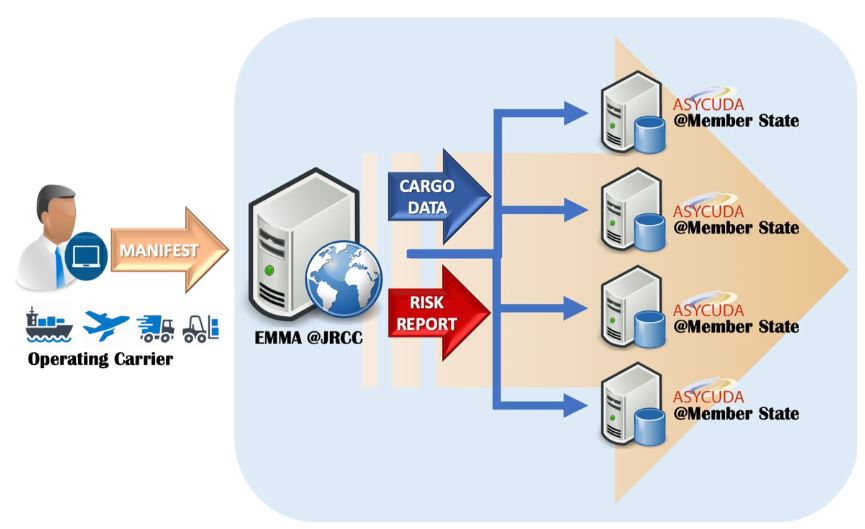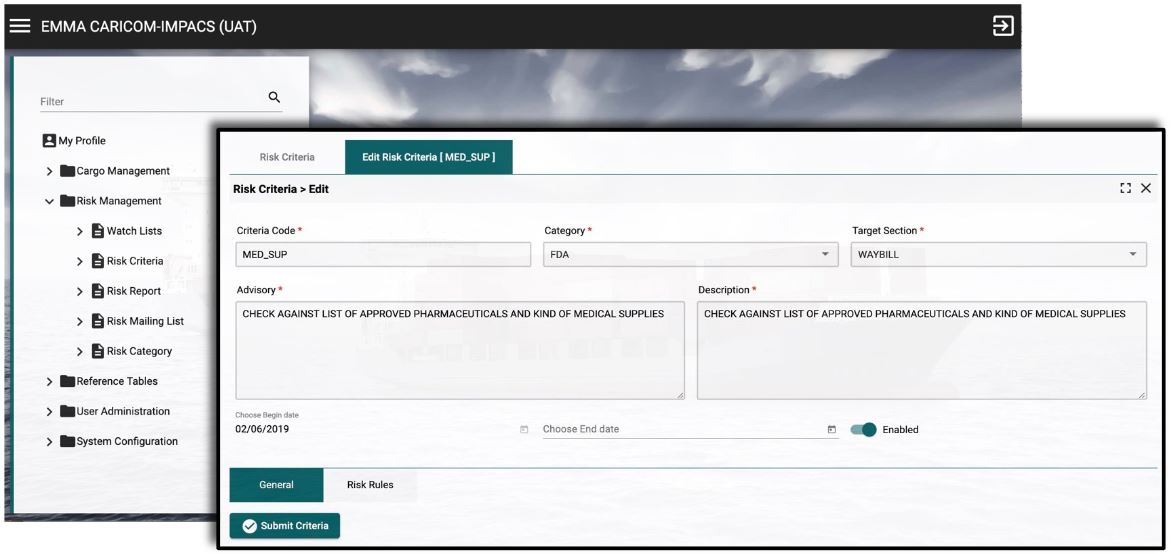UNCTAD – CARICOM IMPACS Project Advance Cargo Information System (ACIS)
UNCTAD signed a project agreement for the implementation of an Advance Cargo Information System (ACIS) which started in February 2018. The CARICOM Implementation Agency for Crime and Security (IMPACS), as beneficiary of the agreement, chose the ASYCUDA platform as the most suitable option to achieve a timely, effective and secure electronic trade data exchange mechanism among fifteen participating CARICOM member countries. The project is funded under the 10th European Development Fund Crime and Security Cooperation Programme. ACIS aims at providing a solution to enable Customs Administration of member countries to potentially improve cargo reporting compliance and overall security in the region. In order to achieve that objective, ACIS has adopted a single dataset specification to be used for any cargo destined to or originating from a port within the CARICOM member countries. This synergy was made possible through the harmonization of customs legislation with regards to cargo reporting.
The legislation requires all cargo operators to electronically submit manifest data via the ACIS Portal hosted by IMPACS. The portal, through its Electronic Data Interchange (EDI) interfaces with the member countries customs management systems of whom 14 out of 15 runs ASYCUDAWorld, seamlessly routes the information to the intended customs (Picture 1). Thanks to the collation of manifest data, IMPACS is able to, within ACIS, leverage computing technologies to quickly detect and disseminate national and regional security threats through an efficient process of pre-arrival screening of cargo data points, thus improving border security throughout the Caribbean.

ACIS which was named Electronic Manifest Management ASYCUDA (EMMA), went into production on May 13th, 2019 with the Grenada Customs administration who was the first member country to align its Customs legislation with the ACIS requirements. Grenada was closely followed by Saint Vincent and the Grenadines on May 16th, Antigua and Barbuda on June 10th and The Commonwealth of Dominica on June 26th. Under the current phase, the four countries submit all cargo manifests to EMMA. Upon receipt of the manifest, EMMA runs the risk assessment process and outputs a risk assessment report that is automatically sent to the Customs administration who submitted the manifest and also presents IMPACS with a similar report via EMMA’s Web Portal.
Once a cargo manifest is sent through the ACIS Portal and the recipient Customs Administration confirms registration, EMMA runs an automated risk assessment to identify shipments that may represent a threat according to configured risk criteria. The Risk Assessment Report generated is forwarded to the Customs Administration identifying all detected risks and risk levels according to the information in the manifest and each of the waybills contained therein.The Risk Analysts at the IMPACS sub-agency, the Joint Regional Communications Center (JRCC), have complete autonomy to build risk criteria, rules and watch-lists (Picture 2), as part of their role in assessing risk and proposing mitigating measures. EMMA’s user interface is simple and intuitive when building risk rules, but at the same time robust to easily create complex conditions when targeting shipments, which may represent risk.
Each Customs Administration is capable of identifying the person(s) from within the organization that should be receiving risk reports. It is anticipated that low-risk consignments identified prior to arrival will be processed in a more efficient manner and granted customs clearance quicker upon reaching final destination. The participating Member Countries are Antigua & Barbuda, Bahamas (non-ASYCUDA), Barbados, Belize, Dominica, Grenada, Guyana, Haiti, Jamaica, Montserrat, St. Kitts & Nevis, St. Lucia, St. Vincent, Suriname, Trinidad & Tobago

The automated environment will facilitate co-operative relationships between and among participating countries, other Government agencies, and relevant international bodies. It will provide means to maintain and further develop co-operation by way of sharing and exchanging data on security and trade facilitation.
The EMMA system will foster greater opportunities to have Customs Administrations systematically exchanging information and intelligence and using risk assessment and targeting techniques to identify high-risk consignments for law enforcement scrutiny without hindering the free flow of legitimate trade. Picture 3 provides a sample of the risk assessment report which include risk levels identified at the general segment and waybill section of the cargo manifest.

Taking advantage of the existing technological infrastructure in Barbados and Trinidad and Tobago, EMMA’s primary site is hosted at the JRCC’s IT infrastructure in Barbados with a secondary/failover site hosted in Trinidad and Tobago at the CARICOM IMPACS headquarters office.
Through the implementation of EMMA, the CARICOM member countries created an enabling environment that could reduce the cost at the border by removing the need for international cargo carriers to invest in meeting different requirement per member country. It also improves the outcome of data analytics based on the wider range of similar data that is consolidated at a regional level thus making the Customs cargo clearance process more effective.


